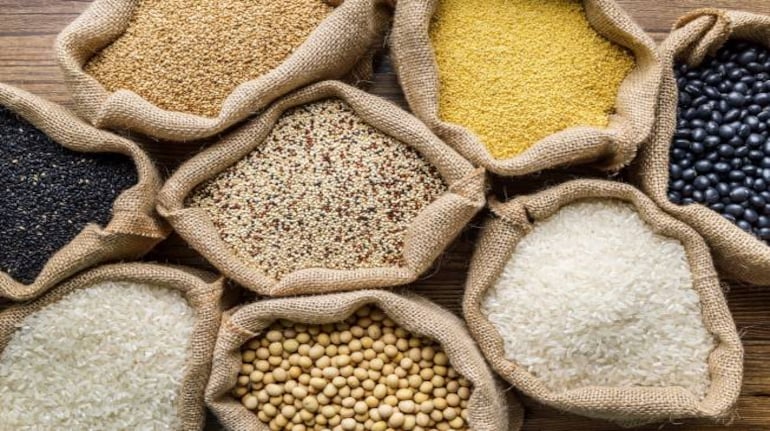
The extension of the free-food scheme by five more years will have minimal spillover effect on inflation and its near-term impact on the fiscal is manageable, according to Nomura.
In their Asia Insights note, on November 6, the brokerage’s economists wrote, “given the extension of the free food programme is unlikely to lead to enhanced stress on cereals stocks, we expect a minimal spillover impact onto inflation."
Also read: Chart of the Day | Global food inflation trends downwards
But the economists, who were expecting a six-month extension and not a five-year one, warned that free schemes are hard to roll back and can lead to competitive populism.
On November 4, at an election rally in Chhattisgarh, Prime Minister Narendra Modi announced that the free-food scheme would be extended for another five years (December 2028).
India’s National Food Safety Act (NFSA) allows around 813 million citizens to purchase 5 kg of food grains per person per month (and 35 kg per household for the poorest of the poor) at highly subsidised prices (Rs 3/kg for rice, Rs 2/kg for wheat and Rs 1/kg for coarse grains).
During the pandemic, the government offered an additional 5 kg of food grains free of cost in a scheme called Pradhan Mantri Garib Kalyan Anna Yojana (PMGKAY). That is, an average beneficiary had access to 10 kg of food grains per month: 5 kg free and the other 5 kg ultra-subsidised, explained Nomura’s economists, giving a background to the announcement.
In December 2022, the government rolled this scheme back, by announcing that, for 2023, beneficiaries would receive only 5 kg of grains, but it would be free of cost. The economists noted, “PM Modi’s announcement has effectively cemented this into a policy for the medium term.”
While the free-food scheme isn’t unsustainable and may have only a minimal additional fiscal impact, the government may have to meet higher-than-expected revenue expenditure and that may impact the fiscal deficit target, they wrote.
Also read: Sebi extends suspension in certain commodity derivatives till December 2024
The report stated, “the higher-than-budgeted rise in operational (revenue) expenditure, including rising rural employment guarantee spending and the propensity to announce further populist measures in the run-up of the general elections could impact the government’s FY24 (year ending March 2024) fiscal deficit target of 5.9% of GDP”.
Discover the latest Business News, Sensex, and Nifty updates. Obtain Personal Finance insights, tax queries, and expert opinions on Moneycontrol or download the Moneycontrol App to stay updated!